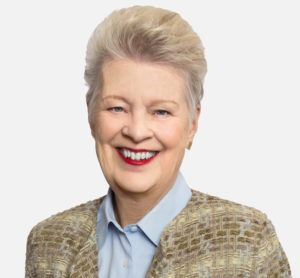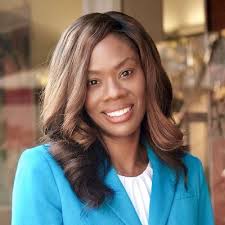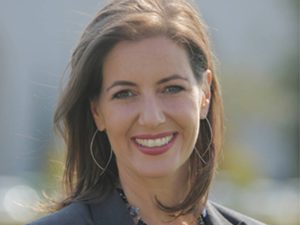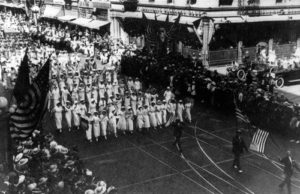Tag: Bay Area Women in Politics
Bay Area Political Women Leaders Panel: The Importance of Networks
Support networks point to the generations of activists, staffers, fundraisers, and more who have helped the Bay Area become an incubator for powerful political women.
This is an exciting moment in women’s political history! Not only does August mark the 100th anniversary of the Nineteenth Amendment, the recent announcement of Senator Kamala Harris as Vice President Joe Biden’s running mate on the Democratic ticket ensures that women’s political work is at the front of our minds. And Harris’s prospects on the national stage also highlight the Bay Area’s outsized influence in fostering women political leaders. This makes for the perfect atmosphere to celebrate the Bay Area Women in Politics Oral History Project from UC Berkeley’s Oral History Center!
In the spirit of this celebration, on Wednesday, July 29, 2020, the Oral History Center hosted the Bay Area Political Women Leaders Panel with guests former San Francisco Supervisor Louise Renne, Pittsburg City Councilmember Shanelle Scales-Preston, and Oakland Mayor Libby Schaaf. This all-star lineup of Bay Area politicos shared their personal journeys to elected office, as well as stories about local political women’s challenges and achievements.
Of particular note in this conversation was the importance of networks. Panelists explained how personal connections not only helped build leadership experience and fuel campaigns, but also pushed them to run in the first place. For Councilmember Scales-Preston, who is in her first term on the Pittsburg City Council, her relationships with other political staffers brought years of expertise to her campaign. And for Mayor Schaaf (and indeed Senator Harris), the women’s political recruitment and training organization Emerge America had a profound impact on her preparedness to seek elected office.
But these support networks also point to the generations of activists, staffers, fundraisers, and more who have helped the Bay Area become an incubator for powerful political women. For example, each panelist shared stories about those who paved the way for them and acted as mentors in political environments sometimes hostile to women. In addition to charismatic elected officials, it is the stories of these behind-the-scenes political players who form the basis of the Bay Area Women in Politics Oral History Project.
As for what we should expect for the Bay Area’s political future, all panelists agreed: more women!
Now is the time to support this project and celebrate generations of the Bay Area’s political women. Join us in documenting this important history through the Bay Area Women in Politics Oral History Project! The UC Berkeley Oral History Center is committed to putting voices in the historical record that might otherwise be lost, and providing the oral histories to the public at no cost. We are currently raising funds and need your help to undertake the expansion of this ambitious oral history collection. You can support this project by giving to the Oral History Center. Please note under special instructions: “For the Bay Area Women in Politics Oral History Project.” To learn more about this project, please contact Amanda Tewes at atewes@berkeley.edu.
To catch up with the conversation with former San Francisco Supervisor Louise Renne, Pittsburg City Councilmember Shanelle Scales-Preston, and Oakland Mayor Libby Schaaf, watch the panel here!
Louise Renne is a lawyer with the Renne Public Law Group, former San Francisco Supervisor (1978–1986), and former City Attorney for the City and County of San Francisco (1986–2001). She previously served as the General Counsel for the San Francisco Unified School District and as the City Attorney for the City of Richmond.
Shanelle Scales-Preston is a first-term member of the Pittsburg City Council, and District Director for Congressman Mark DeSaulnier. She previously worked for Congressman George Miller, and has been working in public service for nearly twenty years.
Libby Schaaf has been the Mayor of Oakland since 2015, and served on the Oakland City Council from 2011–2015. She was previously the Public Affairs Director for the Port of Oakland, and has a background in law.
Panel with Bay Area Women Political Leaders on Zoom July 29
Come celebrate the launch of the Bay Area Women in Politics Oral History Project by joining us for a conversation about the history and future of Bay Area women in politics with former San Francisco Supervisor Louise Renne, Pittsburg Councilmember Shanelle Scales-Preston, and Oakland Mayor Libby Schaaf!
The panel discussion will take place over Zoom on Wednesday, July 29, from Noon—1 p.m. Pacific Time. Click here to RSVP. We will be moderating Q&A. If you would like to submit a question to the panelists, please email it beforehand to Amanda Tewes at atewes@berkeley.edu.

August 2020 marks the hundredth anniversary of women’s suffrage, and the anticipated nomination of a woman Democratic vice presidential candidate — both milestones of the national political roles for women. Here in the Bay Area, women have been driving political campaigns and activism for generations. Through first-person oral history interviews, the Bay Area Women in Politics Oral History Project from UC Berkeley’s Oral History Center will document and celebrate the lives and work of these political women, some of whom have been unsung.
To kick off this oral history project and to celebrate these milestones, join us for a panel conversation with three talented Bay Area women public officials: Louise Renne, Shanelle Scales-Preston, and Libby Schaaf! This panel will include discussion about the historical and current roles of Bay Area political women, lessons from across generations, as well as the challenges and opportunities facing women in politics.

Louise Renne is a lawyer with the Renne Public Law Group, former San Francisco Supervisor (1978–1986), and former City Attorney for the City and County of San Francisco (1986–2001). She previously served as the General Counsel for the San Francisco Unified School District and as the City Attorney for the City of Richmond.

Shanelle Scales-Preston is a first-term member of the Pittsburg City Council, and District Director for Congressman Mark DeSaulnier. She previously worked for Congressman George Miller, and has been working in public service for nearly twenty years.
Libby Schaaf has been the Mayor of Oakland since 2015, and served on the Oakland City Council from 2011–2015. She was previously the Public Affairs Director for the Port of Oakland, and has a background in law.
The UC Berkeley Oral History Center is committed to putting voices in the historical record that might otherwise be lost, and providing the oral histories to the public at no cost. We are currently raising funds and need your help to undertake the expansion of this ambitious oral history collection. You can support this project by giving to the Oral History Center. Please note under special instructions: “For the Bay Area Women in Politics Oral History Project.” To learn more about this project, please contact Amanda Tewes at atewes@berkeley.edu.
Bay Area Women in Politics Oral History Project
This project is unique in that it focuses on women in one geographic region in order to get a clearer picture of the breadth of political work women have been doing on the ground and behind the scenes.

Nineteen ninety-two has been dubbed “The Year of the Woman,” a phenomenon in which a wave of women candidates swept local and national races for public office. California led this charge by becoming the first state in American history to be represented by two women senators—Barbara Boxer and Dianne Feinstein. And since 2016—after a presidential election that provoked heated debate about gender discrimination and sexual harassment—many women stepped up to the challenge of engaging even more visibly in the American political system. Since then, organizations like Emily’s List and She Should Run reported record-breaking numbers of women who wanted to make their voices heard by running for public office.
And yet, 1992 was not the beginning of women’s political activism, but rather the culmination of decades of organization encouraging women to get involved and run for office. For generations, Bay Area women have built the foundations of political activism that span neighborhood organizations to support networks. And their stories inform our present.
In order to document these stories, I am developing the Bay Area Women in Politics Oral History Project to record the history of these local women and their impact on and journeys through politics. The Oral History Center of The Bancroft Library at UC Berkeley continues to preserve stories about California politicians, but this project is unique in that it focuses on women in one geographic region in order to get a clearer picture of the breadth of political work women have been doing on the ground and behind the scenes. Documenting political engagement outside of traditional political venues will capture more stories about women in politics and a more diverse array of stories.
For instance, the pilot interview for this oral history project is with Mary Hughes, a Bay Area political consultant. In her interview, Hughes explained that “in politics and in political consulting, you either win races or you don’t. If you don’t win, no one hires you. If you do win, everybody wants to hire you.” Hughes’s successful career in the Bay Area spans decades and highlights the prominence of women in national politics. And though she does not wish to run for office herself, Hughes sees her role as someone who can best serve her community by managing the election process for political candidates—especially other women. Hughes’s recollections are an example of the kinds of stories that will drive this oral history project.

These long-form oral history interviews survey Bay Area political women’s backgrounds in and passion for political work through self-reflection. This format allows for comparisons between various avenues of political activism—like organizers and elected officials. It also reveals the importance of networks and mentors, and the impact they have had on women in the Bay Area political scene.
As engaged citizens, we need to know more about these women who helped create a space for themselves in Bay Area political life. Who are these women and what are their stories? From neighborhood organizations to national campaigns, what is the range of political activism in which these women engage? How has being a woman been a challenge or an asset to their political involvement? How have these women been working in the background of political life for generations? How does living and working in California affect political opportunities? What kind of political power do these women wield locally and nationally?
As we approach the hundredth anniversary of women’s suffrage, conducting oral histories with women activists and politicians in California’s San Francisco Bay Area will help shape the national narrative about women’s historic, current, and future roles in American political life. Further, gathering firsthand stories will help inspire and instruct a new generation of politically engaged women.
In addition to collecting primary source materials, The Oral History Center shares its collection with the general public through interpretive materials—like podcasts—and educational initiatives. Recording the contributions of these impressive Bay Area women—political fundraisers, organizers, and elected officials—through life history interviews is the first step in developing curriculum for workshops that cultivate young women’s political leadership. These workshops will use oral histories as a tool to foster civic engagement across the political spectrum, as well as to help develop confidence and skills of future women leaders. We also plan to create a podcast, a series of public forums, and a museum exhibit featuring these interviews.
We are currently raising funds for this project, and need your help to undertake the expansion of this ambitious oral history collection. You can support this project by giving to the Oral History Center. Please note under special instructions: “For the Bay Area Women in Politics Oral History Project.” To learn more about this project, please contact Amanda Tewes at atewes@berkeley.edu or 510-666-3687.
Amanda Tewes is an interviewer with The Oral History Center and specializes in California history and political culture.
The Oral History Center is a research program of the University of California, Berkeley. The OHC helps preserve contemporary history by conducting carefully researched video recorded and transcribed interviews. As part of UC Berkeley’s commitment to open access, archival copies of the audio/video and transcripts are placed in The Bancroft Library and are publicly accessible online.